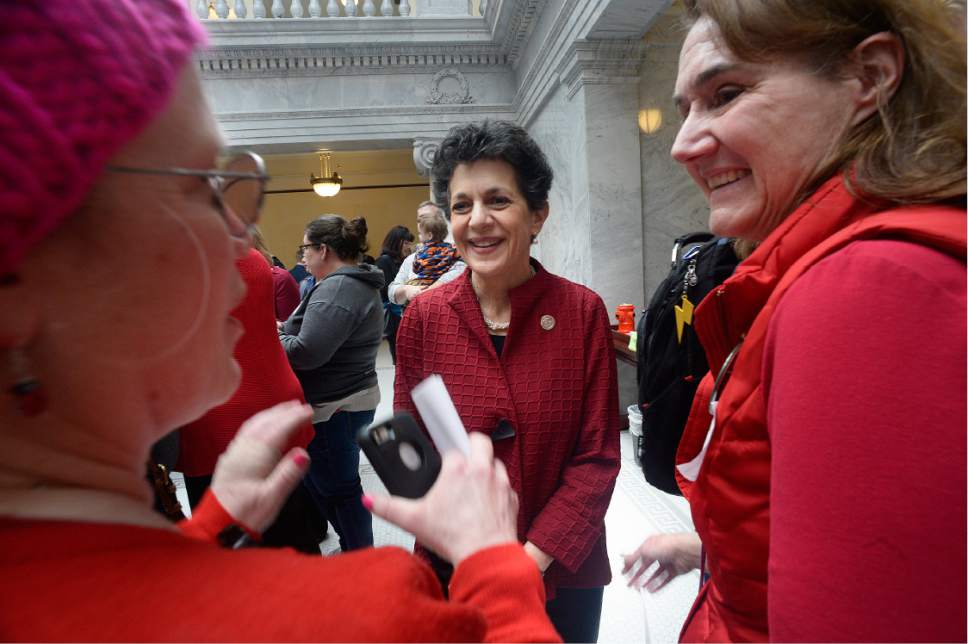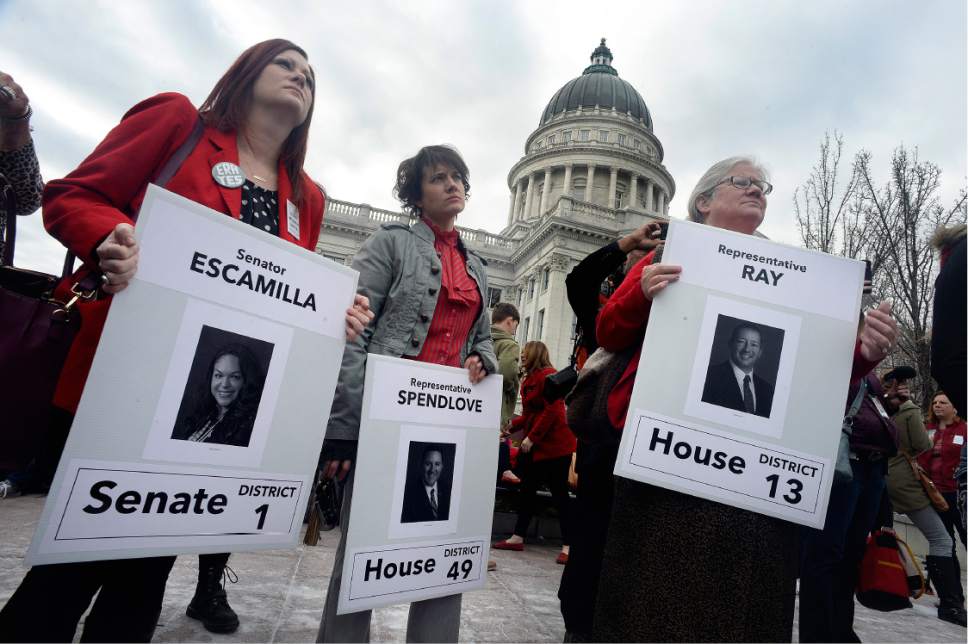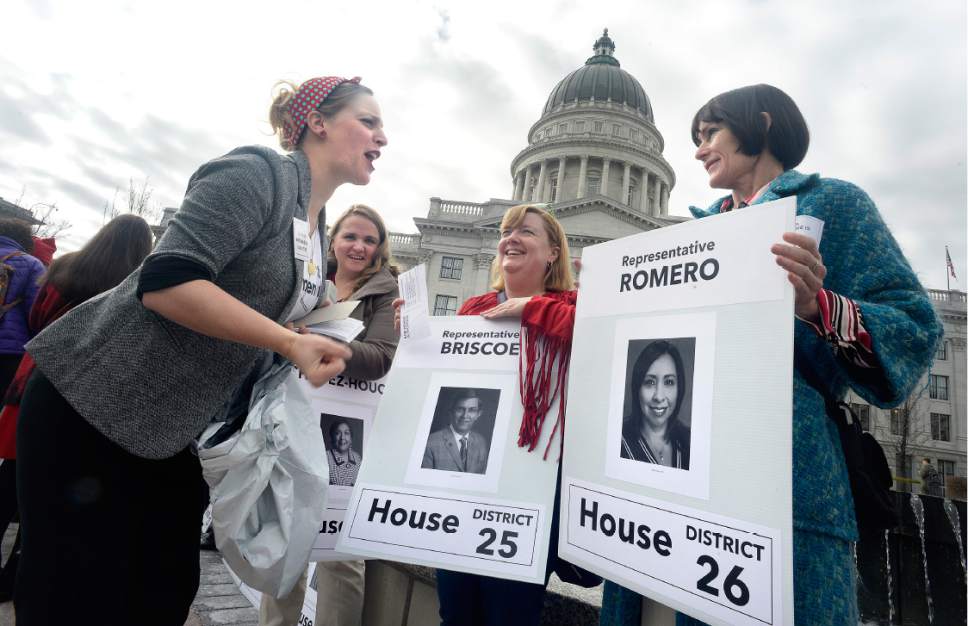This is an archived article that was published on sltrib.com in 2017, and information in the article may be outdated. It is provided only for personal research purposes and may not be reprinted.
Catherine Bergstrom told her boss she wouldn't be at work Wednesday, explaining: "I've got some civic duties to attend to."
"OK," he replied, but it would be an unpaid day off.
Still, Bergstrom chose not to clock in for her shift at the software company where she's worked for the past nine months. And she didn't plan to cook dinner for her family, as she usually does, or vacuum the house, either.
Instead, the Salt Lake City resident participated in a nationwide strike that encouraged women to skip work — both paid and unpaid — to demonstrate their value and varied roles in the everyday function of society. With the absence of female employees, several schools, businesses and municipal offices across the country shut down — including one Ogden bookstore.
It was billed A Day Without Women.
"We tend not to notice things until we lose them," Bergstrom said.
On a chilly morning Wednesday, also International Women's Day, she was joined by about 200 Utah women who gathered outside the state Capitol. In the courtyard, where they met, four bronze statues towered over them, three depicting prominent Utah men and the fourth Martha Hughes Cannon, a suffragette and the nation's first female state senator.
One demonstrator placed a pink knitted hat — like the pointy-eared ones many wore at the Women's March on Washington in January — in Cannon's hands as a sign of solidarity.
The rally was the latest in a slew of marches since President Donald Trump took office, though the turnout was just a fraction of previous demonstrations. For the Utah group, the event Wednesday came on the next to last day of the state's legislative session, echoing a protest in January when thousands of participants disrupted the Legislature's opening.
Kathryn Jones-Porter, a leader with Utah Women Unite, the grass-roots group that organized the local strike, said there's power in being quiet and calculated. There were fewer posters and less fanfare. And the marchers didn't chant.
"This is our life now," Jones-Porter said, twisting a necklace between her fingers that said "she persisted" while promising to return for next year's session. "We're not going anywhere."
Calls to "find your representative" bounced off the marble walls as the group moved inside the Capitol. Women rushed at clerk desks outside of the House and Senate chambers, filling out hundreds of slips asking to meet with lawmakers in-person.
Many came out to speak with constituents while open doors showed votes taking place on the floor.
Rep. Steve Eliason, R-Sandy, was pressed by two women about the gender pay gap in the state. "In general, if my daughter is doing the same thing, I believe she should make the same," he responded.
Some lawmakers pushed back, repeating "I can't vote for that" to groups of women pressuring them. Others chose not to engage at all.
Hillary McDaniel, 37, of Millcreek, was irritated after waiting 45 minutes to speak with Rep. Kim Coleman, R-West Jordan, who didn't show. She wanted to talk to the lawmaker about her concerns with a concealed-carry bill.
"No matter how loud we were, we were ignored and invisible," McDaniel said.
The group swapped out the characteristic pink shades of the women's movement for deeper tones of red and maroon.
Psarah Johnson proudly wore an old-fashioned-styled jacket and matching hat — the latter found at an estate sale for $5 — to comment about a proposed Equal Rights Amendment, which was quashed without a public hearing.
Her outfit represented the "vintage bill," she said, that should have been adopted by Utah in the 1970s to protect women.
Participants also wore name tags that identified them only by zip code to identify as constituents rather that protesters.
"Hello, my name is 84116," read the ones worn by Bergstrom and her 11-year-old son, Carrick.
The two milled around as mostly Democratic and female lawmakers addressed the crowd with prepared remarks about equality and fairness. Of the 104 members of the Utah Legislature, 20 are women.
Ducking shyly behind his mom, Carrick Bergstrom concluded: "Women should be treated the same as men."
Twitter: @CourtneyLTanner







